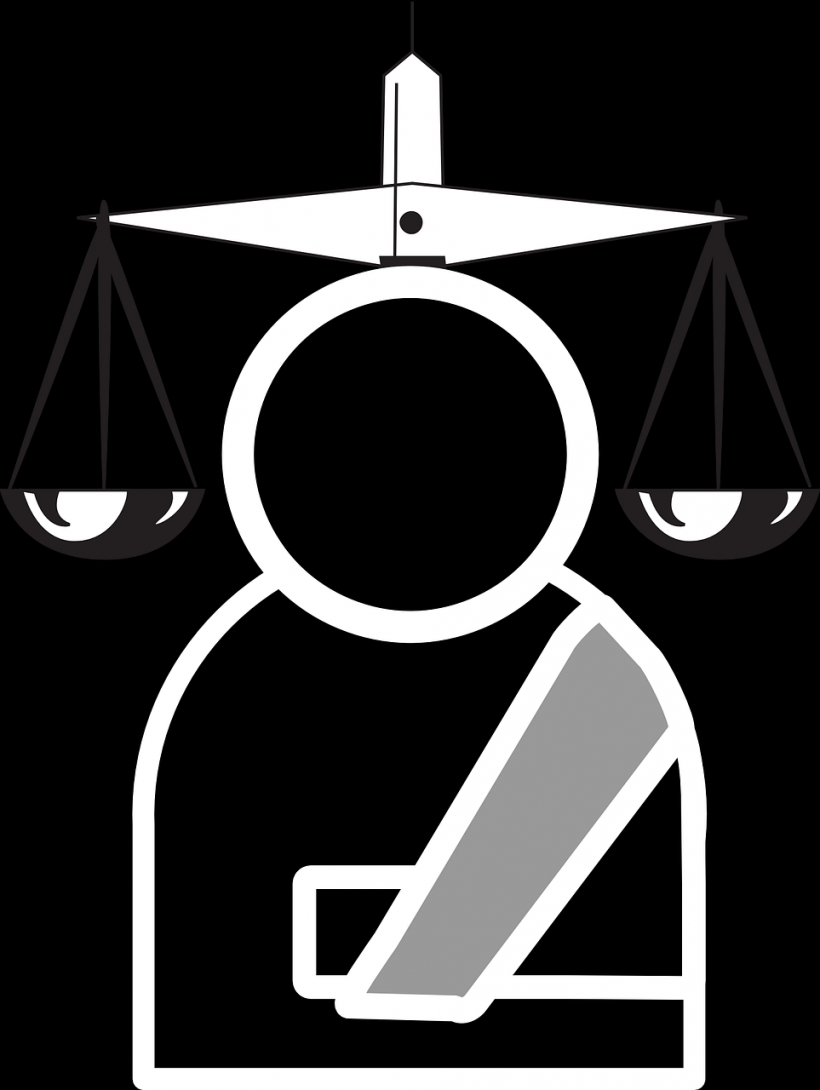Getting hurt on the job can have a huge impact on your life. Not only will this injury affect your ability to work, but it could also affect your income for some time. Workers often worry about whether or not they should file for unemployment if they are out of work due to an injury. Will this affect any worker's comp benefits they are entitled to?
We can help to answer these, and other questions, concerning work related injuries, and your rights. Let's dive right in.
Who Should File for Unemployment?
Unemployment benefits are intended to be used by individuals who have lost their job at no fault of their own. This could be a result of a layoff, furlough, lack of work, or a business shutting down. This type of benefit is not usually intended for individuals who are out of work due to injury, or for people who were fired.
If your injury did not result in you losing your job, then filing for unemployment is not a good idea.
Can I Receive Benefits While Out With A Work Injury?
Even if you do not apply for unemployment, there are types of benefits that you can apply for. It is important that you have some type of financial support while you are out of work. The most common type of benefit is worker's compensation also sometimes called worker's comp.
What Is Worker's Comp?
Worker's compensation is a special type of insurance that most employers carry. In some states, an employer with a certain number of employees is required by law to carry worker's compensation insurance.
This type of insurance provides payments to worker's who are injured on the job and must miss work due to their injuries. When you hire on with a company, it is important to discuss with them their worker's comp policies. You need to know what type of compensation is in place in the event that you are injured on the job. The state and federal government requires that employers provide something to employees who are injured on the job.
What Does Worker's Comp Pay?
Worker's compensation will often pay for medical bills that result from your injury. It is unjust to require a worker to pay for medical bills that are incurred as a result of doing their job for an employer. This is why worker's comp was established, to protect the employee from being held responsible for these types of expenses. Worker's comp can cover expenses of this type even for mild injuries that do not result in extended time away from work. Any medical expenses that result from a work injury should be filed through worker's comp.
What If I Can't Return To Work?
If your injuries are so serious that you will not be able to return to work, worker's compensation can also help. Worker's compensation laws provide protection for employees if they must be out of work for an extended period of time due to their injuries. Under these laws, the worker cannot be fired during this time. However, in most states, you are also not allowed to start collecting unemployment benefits.
If you cannot return to work, your job will be protected, but what about money? If you are eligible, you should be able to claim temporary disability if you are unable to work for a period of time. This is allowed under worker's comp laws.
You can also receive lost wages under worker's compensation as well.
How Do I Receive Lost Wages Under Worker's Comp?
In order to get what you deserve under worker's comp programs, it is very important that you file the proper paper work at the proper time. Employers will sometimes attempt to block worker's compensation payments. If this happens you may need the assistance of a worker's comp lawyer.
What If My Employer Doesn't Want Me To File?
There can be situations in which an employer will encourage an employee not to file worker's compensation. This could be because the employer does not want a claim on the insurance. You should know, that this is unjust and illegal. You have a right to file for worker's comp if you were injured on the job.
What Are Some Signs I May Need A Lawyer?
It is important to remember that worker's comp is a type of insurance. When you file for worker's comp you are filing a claim on your employer's worker's comp insurance. Insurance companies are notorious for discouraging claims. They often do not want to pay, or they want to pay less than what is just. This is why it is very crucial that you advocate for your self and seek out legal help if you need it. Here are a few signs that you may need to hire a worker's comp lawyer to get what you deserve following your injury.
Employer denies injury- If your employer denies that your injury happened at work or that the injury happened at all, you will need the help of a lawyer in order to get what you deserve from worker's compensation insurance. If the insurance company claims it didn't happen at work, you should also seek out a lawyer.
Slow claims- If your employer or company is procrastinating or otherwise working slowly on your claim, you should hire a lawyer to expedite your claim. Remember, you need your worker's comp benefits to help pay for medical expenses and bills. It is not acceptable for the company to drag its feet. A company should take no more than 30 days to complete your claim.
Permanent disability- If your injury resulted in permanent disability, there is a greater chance that the insurance company will attempt to deny your claim or deny all expenses. You need a lawyer who is knowledgeable in worker's comp cases to work on your behalf.
Denied treatments- If your doctor has recommended certain treatments or medications and the insurance company refuses to pay for it, you should seek out the help of a lawyer. Remember, your future ability to work depends greatly on properly recovering from your injury. You should not be denied treatment that your doctors sees as necessary.
Insurance denies the claim- If you have taken the proper steps to file your claim and the claim is denied, you will need the assistance of a lawyer to appeal the denial and get what you deserve.
Settlement is too little- Another instance in which you need a lawyer is if the insurance company offers you a settlement that will not cover the expenses. This is where it is important to keep good records of medical treatments and expenses. You need to be able to prove how much the settlement should justly be.
You plan to file SSDI- Social Security Disability benefits may be an important part of your financial recovery if you are put out of work. These types of benefits could be reduced if you also file for worker's comp. A knowledgeable lawyer, however, will be able to structure your settlement carefully to ensure that you get the maximum of both types of benefits.
Your employer retaliates in any way- If your employer threatens you, fires you, or in any way retaliates against you for filing worker's comp you need a lawyer. This is an infringement of your rights and could possibly call for a harassment case.
Your case involves a third party- In some cases, there are more than just two parties involved. For instance, if you were driving a work vehicle during work hours and you were struck by another vehicle, you would need to file worker's comp and you would need to deal with the personal injury aspect of your accident as well to make sure the other party is held liable for their contribution to the wreck. This could get complicated quickly. A lawyer can help ensure that all information is submitted correctly to the various insurance companies involved. They can also make sure that your rights are protected on all fronts.
What Are the Signs I Do Not Need a Lawyer?
Not all worker's comp cases require the help of a lawyer. The worker's comp system is set up to be navigated by the employee and the employer alone. However, the system gets complicated when an employer or an insurance company does not want to do their part.
Here are a few instances in which you should be able to navigate a worker's comp claim without the help of a lawyer.
Minor injury- The worker's comp system is designed to handle minor injuries efficiently. Employers expect that minor injuries will occur in any line of work. There is usually little fuss over filing a claim for a minor injury which will not result in extended lost time from work or disability.
Preexisting conditions- If you already had a preexisting condition, and events at work aggravated this condition, you may not need the help of a lawyer. In these types of situations, you may not be able to file worker's comp at all for your injuries or medical expenses. This is especially true if you failed to inform the employer that you had the condition in the first place.
You will not miss work- If the injury is not going to result in you missing an extended amount of work, you will likely not need the help of a lawyer. For small injuries, your employer will file your claim, give you a few days to recover, and that will be the end of it.
How Will A Worker's Comp Lawyer Help Me?
If you are facing some of the challenges listed above, a worker's comp lawyer could be a great benefit to you. Let's look at some of the ways they can help you through this difficult time.
Timely filing- A lawyer will be able to ensure that all paper work is filed in a timely way. These types of claims require that paper work is filed on a strict timeline. Failing to do so could result in you losing important benefits that you need.
Experience- If you have never dealt with worker's comp insurance, there could be many important details that you are unaware of. A worker's comp lawyer will be an expert on all of these details. They will be able to advise you on the exact steps you need to take in order to get the benefits and justice you deserve.
Less stress- If you were injured at work you need to focus on recovering physically. Dealing with insurance companies and your employer will only add stress to an already stressful time. When you hire a lawyer to handle this for you, you can instead concentrate of healing and getting better.
Bigger compensation- Workers who choose to hire a lawyer will often see a bigger compensation package. These professionals know what to ask for and how to ask for it. To ensure that you get the most out of your worker's comp claim, work with a lawyer.
Handle appeals- When a claim is completely denied, a lawyer will know how to file an appeal and how to do it quickly to give you the best chance.
They are on your side- When you hire a lawyer you can rest assured that you have someone on your side. The insurance company works for your employer, so they may not have your best interests in mind. The lawyer, however, will put your needs and information as a priority.
Your employer has a lawyer and you should too- Rest assured that your employer will have legal advise on their side. You will also need legal advise as well to ensure that you are treated justly.
Can I Handle a Case On My Own?
There is nothing stopping you from handling a worker's comp case on your own, however, you should be aware, that unless you are a legal professional, there are many details involved in this type of case that you may be ignorant of. Ignorance can cost you a lot in a legal matter.
To ensure that you are treated fairly and justly, you need a legal professional on your side.
* This is a contributed article and this content does not necessarily represent the views of sciencetimes.com














!['Cosmic Glitch' in Einstein's Theory of General Relativity Could Be Explained in This New Scientific Tweak [Study]](https://1721181113.rsc.cdn77.org/data/thumbs/full/53435/258/146/50/40/cosmic-glitch-in-einsteins-theory-of-general-relativity-could-be-explained-in-this-new-scientific-tweak-study.jpeg)
